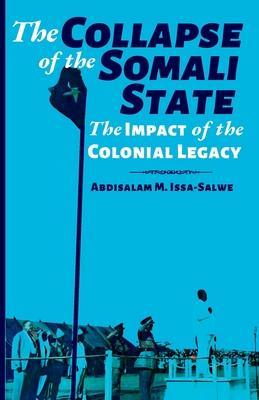Like many African nations at the end of the 1980s, Somalia faced economic, social and political problems. Many of these countries were still struggling to survive the upheaval in this period, but Somalia could not solve its problems as a healthy nation. Instead the problems led to its disintegration and dismemberment in a bloody civil war roughly four fifths of its population displaced. These displaced people have lost their past and their future and that of their children. Subsequently, the country has been divided into fiefdoms ruled by separate armed clans.
The political and economic systems collapsed. The human agony is beyond imagination. What caused this agony and the collapse of civil society? What were the forces which shaped it? Was it part of an inevitable evolutionary process? To what extent did the colonial partition contribute to the calamity? By examining the Somali politico-historical perspective, this book explores the impact of the colonial legacy on the political, social and economic life of the Somali nation, and posits that it is one of the main factors which led to the collapse of the modern Somali state in the early 1990s. It will also briefly consider some immediate post-collapse outcomes.
Abdisalam M. Issa-Salwe (PhD) is Somali scholar, researcher, lecturer, and author as well as celebrated veteran of Somali Studies. He is written, edited, many scholarly articles and books. Some of his published works include: 'The Collapse of the Somali State: The Impact of the Colonial Legacy (1996); 'Cold War Fallout: Boundary Politics and Conflict in The Horn of Africa (2000); 'Oral Culture and Computer Mediated Communication: Social Dynamics of Mailing Lists (2010). He is currently Vice-Chancellor for Academic Affairs and Head of the Deanship of Curriculum Development. Dr Abdisalam is also Professor.
